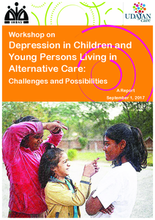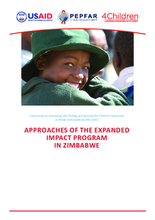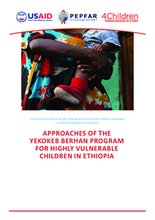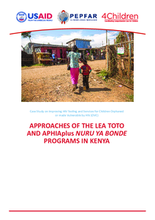Displaying 291 - 300 of 525
This presentation will review the needs of traumatized children in foster care and appropriate clinical response, including diagnosis, treatment planning, and follow-up.
This document provides a full report of the workshop on “Depression in Children and Young Persons living in Alternative Care: Challenges and Possibilities.”
This study sought to expand the literature on the comorbidity of foster care and substance abuse and mental illness by undertaking a secondary analysis of a large national cohort in the US.
This paper examines the extent to which socioeconomic vulnerability, psychosocial service consultations, and preventative social services spending impacts the reunification for children placed in out-of-home care.
In this case study, Coordinating Comprehensive Care of Children (4Children) documents and evaluates the work of the World Education/Bantwana Expanded IMPACT program in Zimbabwe.
In this case study, Coordinating Comprehensive Care of Children (4Children) documents and evaluates the work of Pact's Yekokeb Berhan Program for Highly Vulnerable Children in Ethiopia.
In this case study, Coordinating Comprehensive Care of Children (4Children) documents and evaluates the work of COGRI’s Lea Toto program and the FHI360 led APHIAplus program in Kenya.
This study aimed to test the effectiveness of life skills education (LSE) and psychoeducation in the reduction of Youth Self Report (YSR) scores on institutionalized children in Kenya, using structured activities supported by trained facilitators.
This article presents the findings from the Mind Your Health study conducted in Northern Ireland, which analyzes the experiences of young people in care and their carers in accessing and engaging in mental health services.
This article examines the impact of poverty on looked-after children and their families, describes and evaluates the use of multiple family group therapy and other family-based interventions, and reports children's experiences and feedback from the groups.




